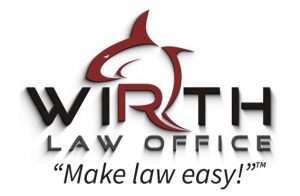 Being released from jail on probation can feel like you are getting a second chance. However, getting caught for probation violations in Oklahoma can feel like that chance is being taken away. Probation violations can lead to a lot of unintended consequences, including being sent back to jail. If you are facing probation violations in Okmulgee, you will want to get help to minimize these consequences and to help the court understand what you may need to successfully complete your probationary period.
Being released from jail on probation can feel like you are getting a second chance. However, getting caught for probation violations in Oklahoma can feel like that chance is being taken away. Probation violations can lead to a lot of unintended consequences, including being sent back to jail. If you are facing probation violations in Okmulgee, you will want to get help to minimize these consequences and to help the court understand what you may need to successfully complete your probationary period.
Probation Can Mean Freedom After A Scrape With The Law
Probation is a valuable tool within the criminal justice system in Oklahoma. It is often used with first-time offenders as a way to help that offender avoid jail and still be supervised for a period of time. The court always sets the terms of probation.
Probation is an alternative in a plea bargain as well as in deferred sentences and suspended sentences. Ideally, it has a dual function — to avoid placing another offender into an overcrowded jail and to allow the offender time and the means to help themselves get past a criminal act.
Plea Bargains, Deferred Sentences, And Suspended Sentences
Plea bargains are one of the most valuable tools in the arsenal of tools that district attorneys and defense counsel have. It involves having a defendant plead guilty to a lesser crime.
Most often, probation is offered in lieu of some or all of the time that person would have otherwise been sentenced to. A plea bargain creates a criminal record, but keeps the defendant out of jail.
A deferred sentence works differently. The defendant, again often a first-time offender, is given a probationary period of time during which the offender must obey all of their probationary terms. This too helps the offender avoid jail time.
If the defendant complies with all the court’s orders, at the end of the deferral period the court enters the plea of “not guilty” and the case is then dismissed. There is no conviction on the offender’s record.
In a suspended sentence, the court finds the defendant guilty but allows the defendant to continue living and working in the community subject to their probation conditions. The sentence is “suspended.”
Probationary terms can be as unique as each case requires. But basically, a person must promise to obey all laws and stay out of trouble. That person may be ordered to abstain from drugs or alcohol, attend AA meetings, or take an anger management class. In most cases, the offender must report to a probationary officer and pay probationary fees.
In all of these situations, the offender avoids jail time in exchange for their agreement to comply with the court’s orders. So, what happens when — either intentionally or inadvertently — the offender fails to comply?
Reported Violations And Hearings To End Probation
Violations happen for varying reasons. It could be that a person forgets a meeting with their probation officer or doesn’t have the money to pay their probation fees.
Sometimes, a person thinks that if they just party this once, no one will notice. Then their probation officer demands a random drug or alcohol test and they are caught.
Usually, a probation violation is reported to the district attorney. The district attorney then decides how to handle it.
The DA may bring a motion to end the probation. In the case of a suspended sentence, that motion is called a Motion to Revoke.
In a deferred sentence, the motion is called a Motion to Accelerate. It accelerates the time to the end of the probationary period and the offender has to go to jail for the entirety of their original sentence. There is no credit for time served while under probation.
Though both motions seek to end the probation and have the offender returned to jail, there is a difference between the two motions regarding how the time successfully spent on probation is treated.
On a suspended sentence, the motion is brought to lift the “suspension” and send the defendant back to jail or prison to serve the remainder of their sentence. If granted, the court will give credit for all the time spent under probation.
Both options require a hearing before a judge.
The Probation Violations Hearing
The prosecutor has a low burden of proof regarding probation violations in Oklahoma. The prosecutor only needs to show that it is more likely than not that the offender violated the probation terms. This is a lower standard than what is used for most criminal law matters.
Because not all probation violations are done willfully, it is important for the court to understand what happened if an offender violated the terms, why that happened, and how to avoid that happening in the future. Sometimes, this can be as simple as helping the court understand that the offender needs to restructure how and when probation fees are paid.
All too often, the court makes orders without understanding the impact on the offender. It is in everyone’s interests to have a probationer successfully meet all the terms of their probation. Small adjustments in terms can make a big difference in compliance. Your Okmulgee attorney can help the court understand what you need to meet your probation terms.
Once all the evidence and arguments are heard, the court may rule immediately. If the court rules in the defendant’s favor, the terms of the probation are reinstated or changed, and the defendant maintains their freedom. If the court rules against the defendant, they are usually taken into custody immediately.
Get the help you need today to maintain your freedom.
Low-cost Consultation With An Okmulgee Lawyer
Call 918-756-9600 now for a initial consultation with a qualified Okmulgee attorney at Wirth Law Office – Okmulgee.
Or, enter your legal question or concern in the firm at the top right of this page, and one of our attorneys will email or call you.







